The No-BS Guide to Triathlon Nutrition
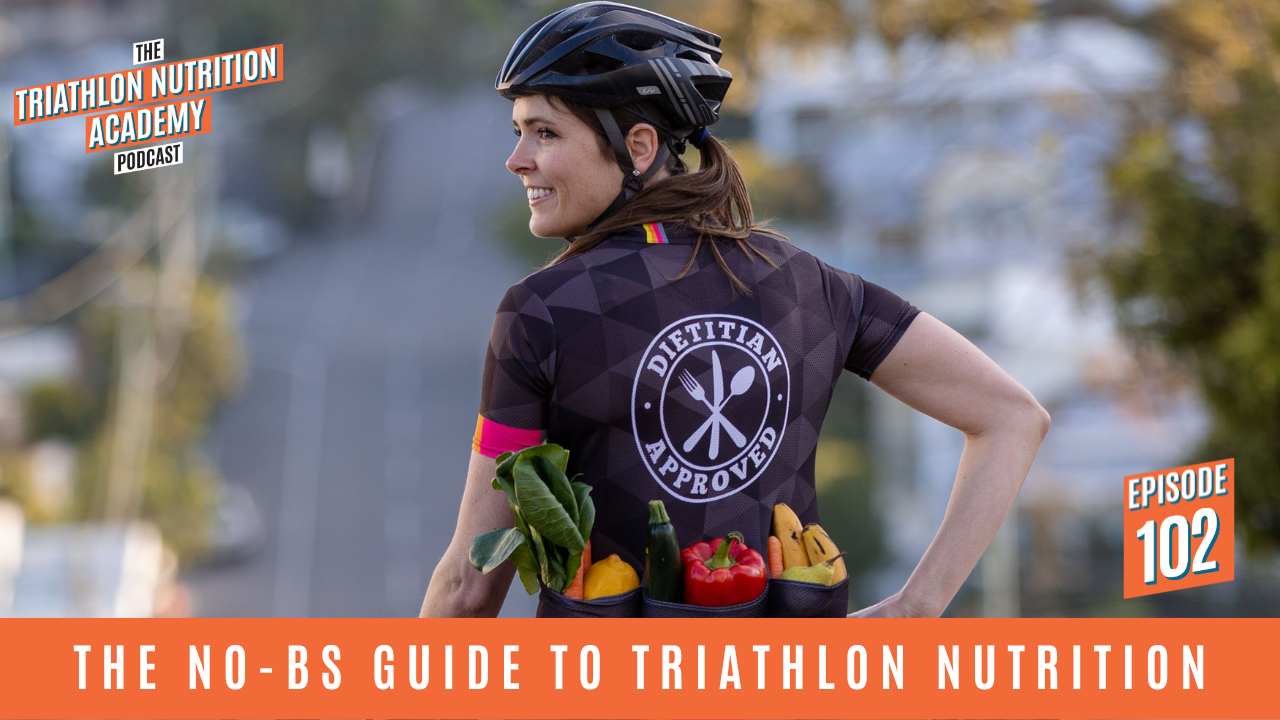
The best time to work on your nutrition was 6-12 months ago. The second-best time is NOW.
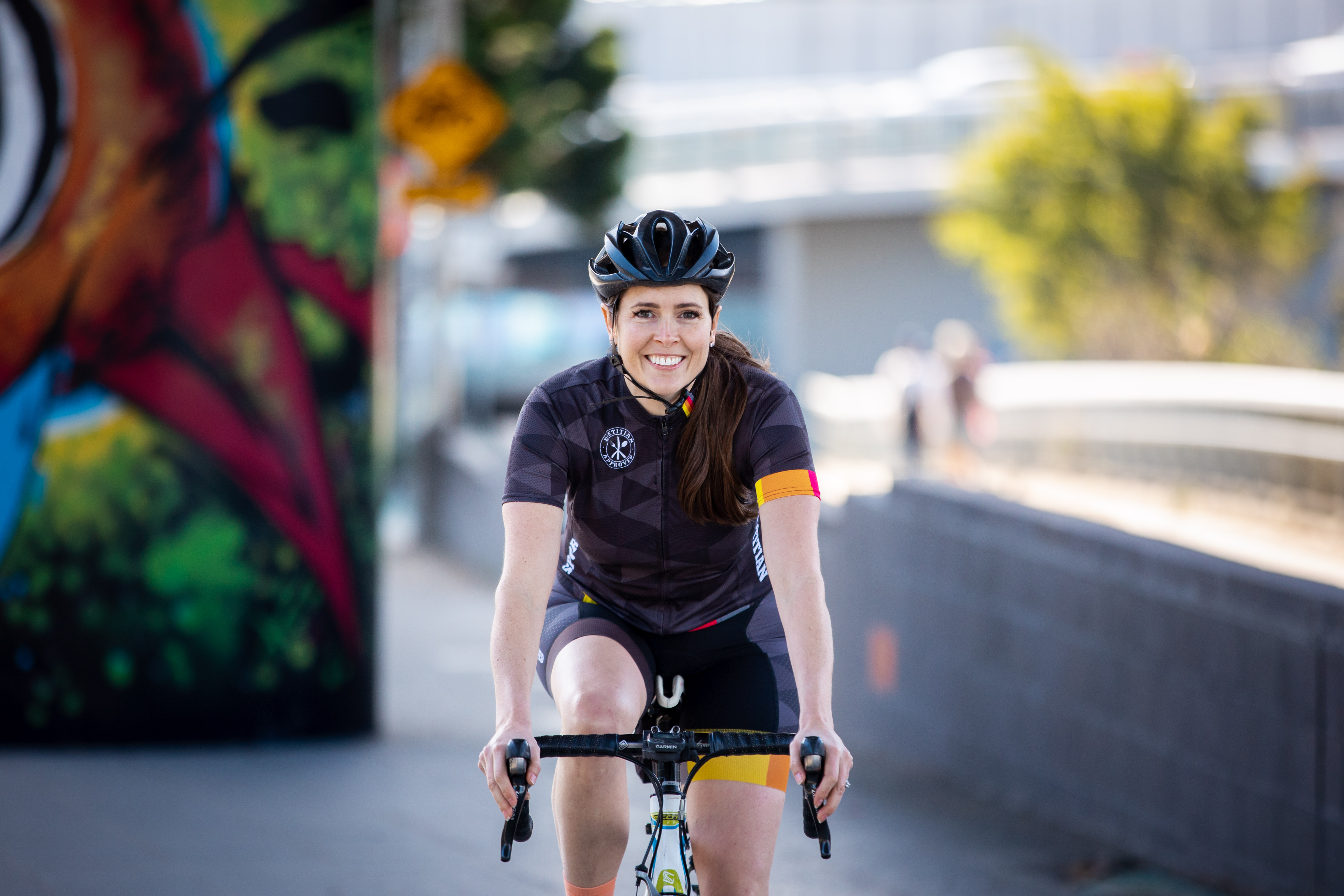
Whether you're on track with the goals you set at the start of the year, you've lost momentum or you didn't set any goals and have been winging it so far this year – draw a line in the sand and let’s do something about it now
Triathletes with a race nutrition plan perform better than those that don’t.
In this post we’ll dive into how to fuel your body for success and make the most of your training sessions, creating sustainable change for a healthier, fitter you.
Making Time for What Matters
As a triathlete, you know how precious time is. Balancing training, work, family, and all the other aspects of life can be a challenge. However, when it comes to improving your nutrition, waiting for the perfect time simply won't cut it.
The truth is, you'll never have extra hours magically appear in your schedule. It's up to you to make time for what's important.
How Chris and Kelly are Saving More Than $550 on Supplements Each Month!

Get ready to discover the secret hacks of two Triathlon Nutrition Academy athletes as they share how much money they are SAVING each month since joining the program.
Kelly Estes and Chris Tubbs, both age-group triathletes based in the USA, have achieved something remarkable with their nutrition. Let’s delve into their experiences to shed light on the unexpected benefits of optimising nutrition for performance.
But first, here’s a little background on Kelly and Chris:
- Chris just completed Chattanooga 70.3, Escape from Alcatraz & is preparing for his fourth Ironman in Cozumel.
- Kelly dabbles in lots of Olympic Distance events, has recently completed a 70.3 and is gearing up for his first ever Ironman in California in October later this year.

Shedding unnecessary supplements
As an athlete, you may have fallen into the trap of believing that an abundance of supplements is essential for success.
Chris and Kelly, just like many others, were hesitant about joining the Academ...
Erin's Secrets to an 11 minute Personal Best at Eagleman 70.3

Erin Byrge has found the formula to successful racing
Erin's 11 year racing career began with running with her son. She was already a swimmer and cycler so adding on running and competing in a triathlon seemed like a no brainer. Since then, she has been addicted to the sport, enjoying the sense of accomplishment and camaraderie it offers.
Over the years, she’s competed in various races including Kona and the World Championships.

The Importance of Nutrition
Erin continues to learn and improve every year, and nutrition has been a major focus for her in recent times. Previously, she didn't prioritise nutrition as part of her training and everyday life, but being in the Triathlon Nutrition Academy changed her perspective. Erin now understands how all the puzzle pieces fit together, enabling her to train stronger, sustain performance, and recover better, even with frequent races.
Prior to her nutrition transformation, she neglected recovery meals, thinking that not consuming...
How to Find Balance Post-Race So You Don't Blow Out and Gain 10kg/20lb

Many long course triathletes use races as an opportunity to manage their body composition (then go completely off the Richter after it’s done!).
Prioritising performance over overall health and nutrition can have negative consequences. There’s a better and easier way! Let’s discuss the importance of balance and my four tips to help triathletes find balance after a big event.

1. Your Health is Wealth
Our body, our health is one of the most important things in life.
It's easy to get caught up in the demands of work, family, and other responsibilities, but taking care of your body should be a TOP priority.
Remember that your body is your temple, and what you put into it matters. Nourish it with high-quality foods, stay hydrated, and prioritise adequate rest and recovery.
2. Embrace Balance
Finding balance is essential for long-term success as a triathlete. Balance is boring but these small consistent habits have the greatest impact. In fact, nutrition plays the bigg...
6 Simple Nutrition Hacks to Save You at Least 2 Hours a Week
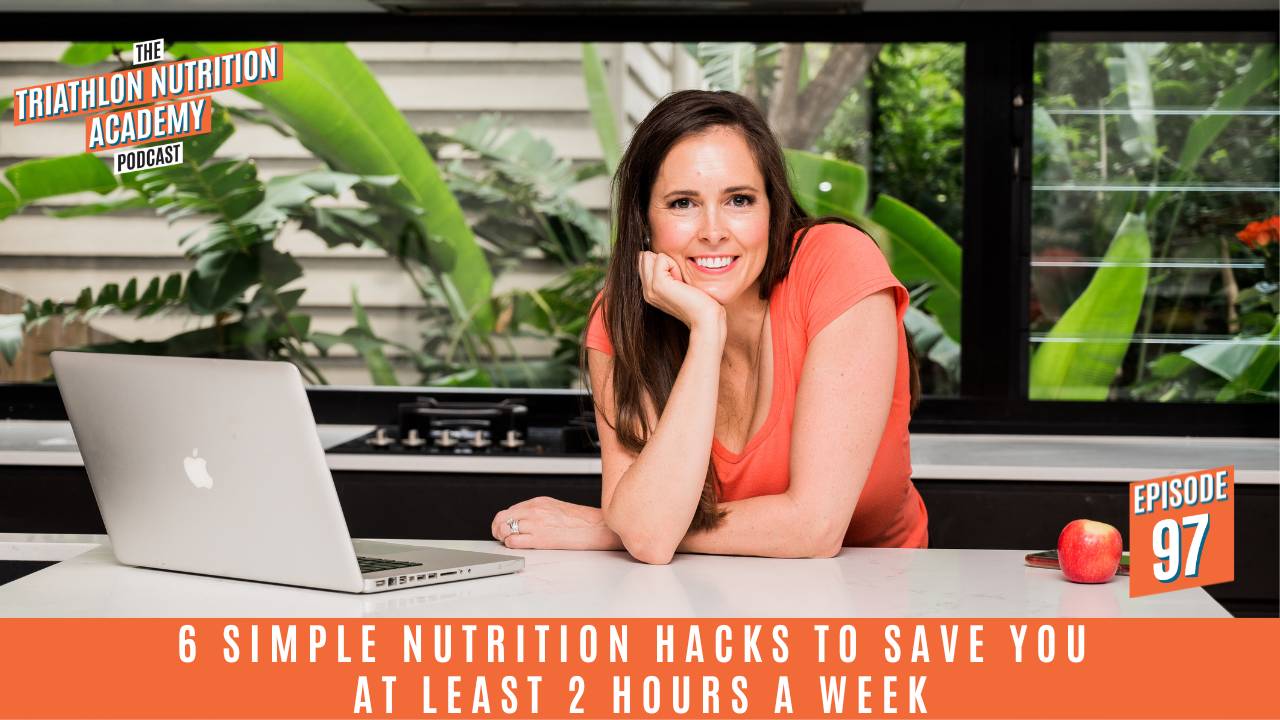
As a triathlete, it often feels like there's never enough time in the day to juggle training, work, family, and social life.
It's easy to get overwhelmed and neglect other aspects of life, such as your nutrition. It’s often the first ball that gets dropped when we’re busy and stressed.
To help you, here are 6 simple nutrition hacks that can help you reclaim your time without compromising on your nutrition. Pick one and implement it RIGHT AWAY to save at least 2 hours each week.

1. Set Aside Dedicated Meal Planning Time
One of the most effective ways to save time during your busy week is by setting aside dedicated meal planning time. Make it a priority to carve out a specific time each week, put it in your calendar or diary, and treat it as a non-negotiable appointment that you must stick to.
Meal planning helps you stay organised and eliminates the need to think about what to cook on the fly.
If you're unsure where to start, you can download our free meal planning template,...
Why You’re a Tired Triathlete All the Time and How to Find More Energy
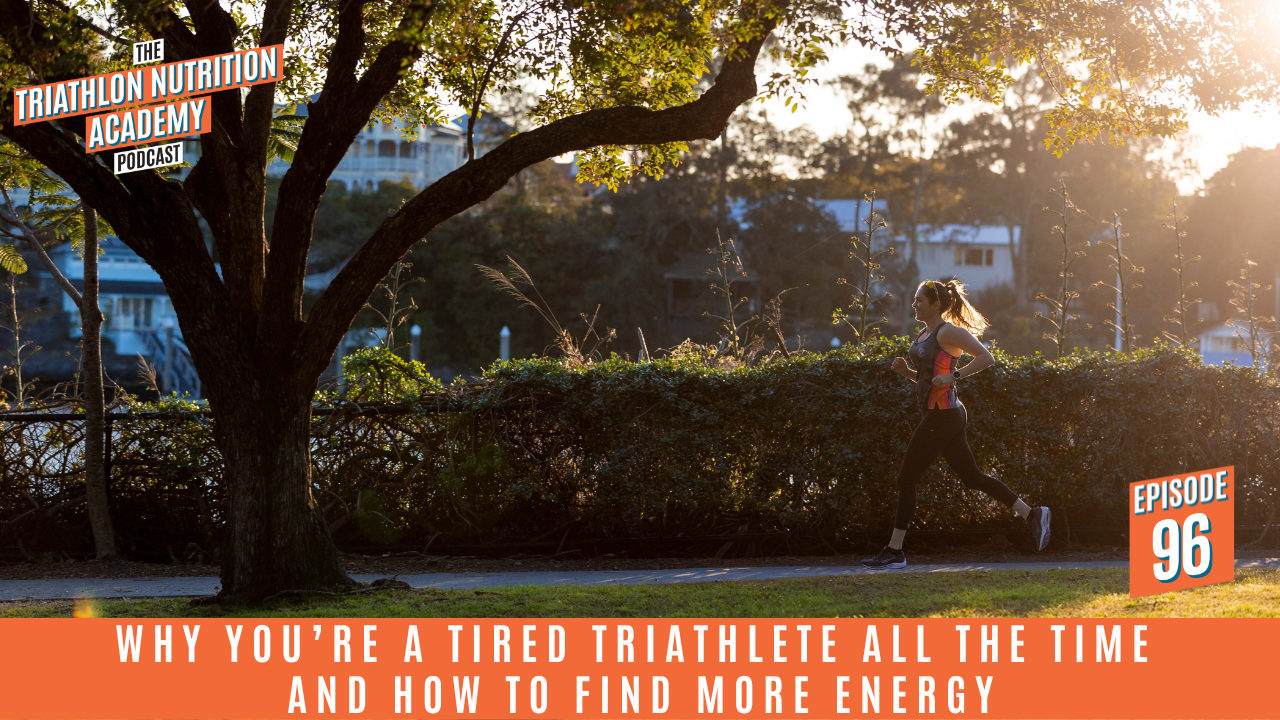
Do you feel tired and fatigued constantly as a triathlete?
Of course you do - you’re training for three sports! But you shouldn't be completely wiped out all the time.
Let’s explore the common reasons of constant tiredness and fatigue experienced by many triathletes. Specifically, we'll discuss why you're feeling tired all the time and, more importantly, how to find that much-needed energy boost to power through your training sessions.
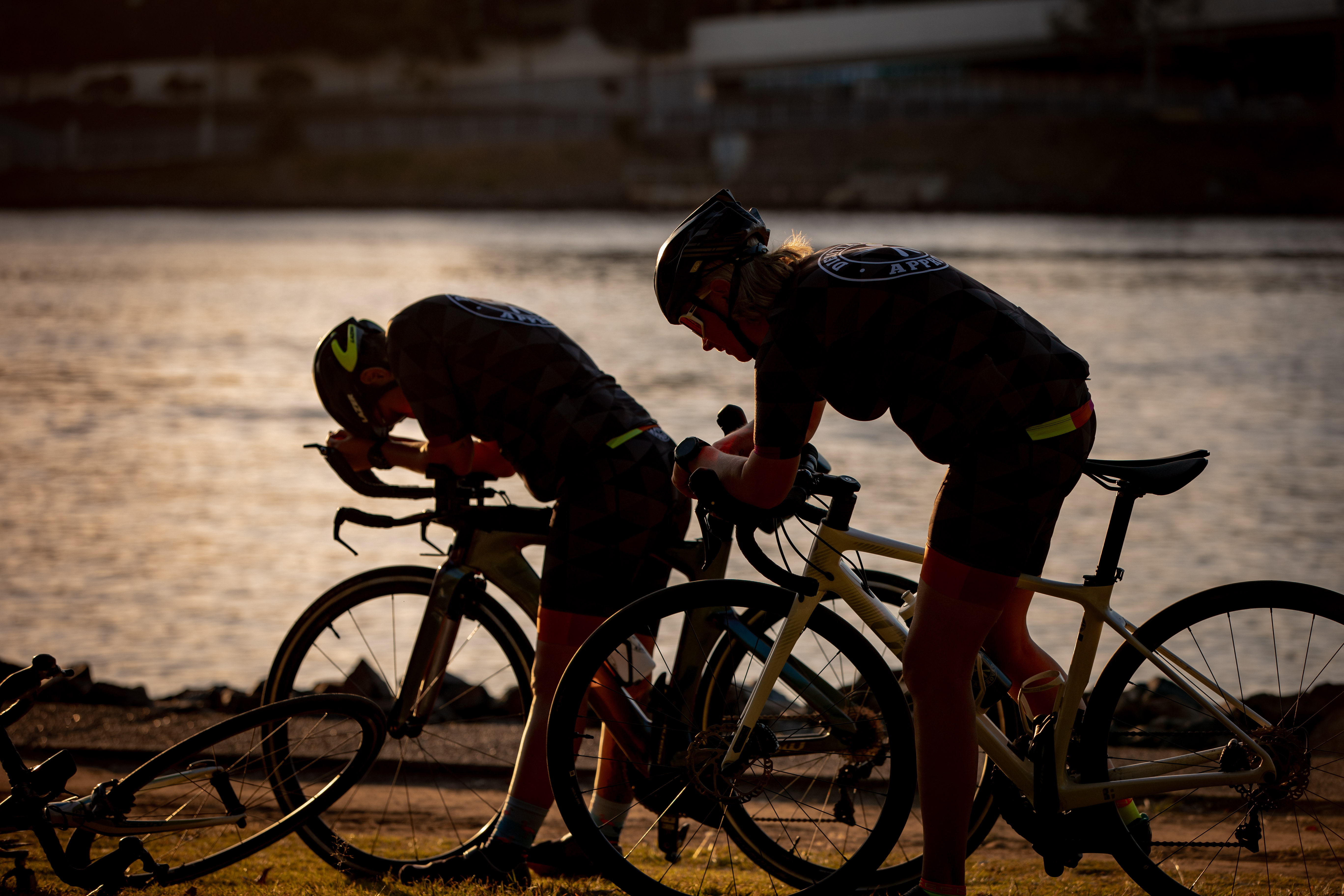
Understanding Normal Tiredness
While feeling tired due to triathlon training is expected due to the physical demands of three sports, it is important to recognise when exhaustion goes beyond normal limits.
Pushing yourself to the point of complete exhaustion is not sustainable or healthy. You should not be completely wiped out all the time, even during full distance or Ironman training.
By evaluating your current state of tiredness, you can realise that feeling constantly drained is not normal or necessary for triathlon success.
Recognisi...
How To Shave Minutes Off Your Triathlon Transition Times
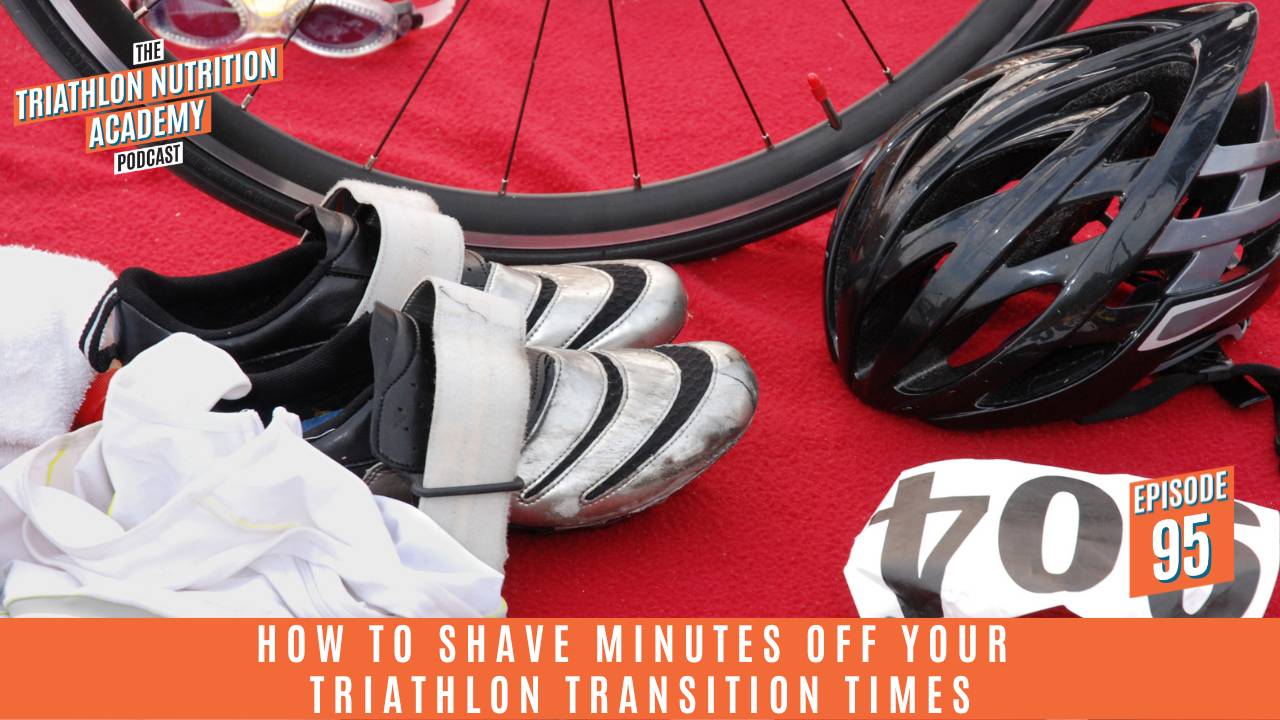
Having a smooth and efficient transition is crucial in a triathlon to save time and maintain momentum.
Practice and preparation are key to a faster transition. By implementing these tips and refining your routine, you can improve your efficiency and save valuable time during a triathlon transition.
1. Organise your gear
Lay out your equipment in a logical order so that everything is easily accessible. Arrange your items in a sequence that matches the order in which you will need them during the transition.
- It’s bike then run, so don’t have your shoes sitting in your helmet.
- Put your helmet on your bike, top down, straps out, ready to chuck on your head.
- Where is it best to put your sunnies? Inside your helmet to put on first or tucked into the outside to put on while you’re riding?
- When to put your race number on? When is it needed? Do you clip it on your race belt for when you start to run? Or under your wetsuit (if needed for the bike)?
- Sunscreen - use waterproof and lo...
How Liz Blatchford Managed 120g of Carbohydrate Per hour on the Bike in Ironman
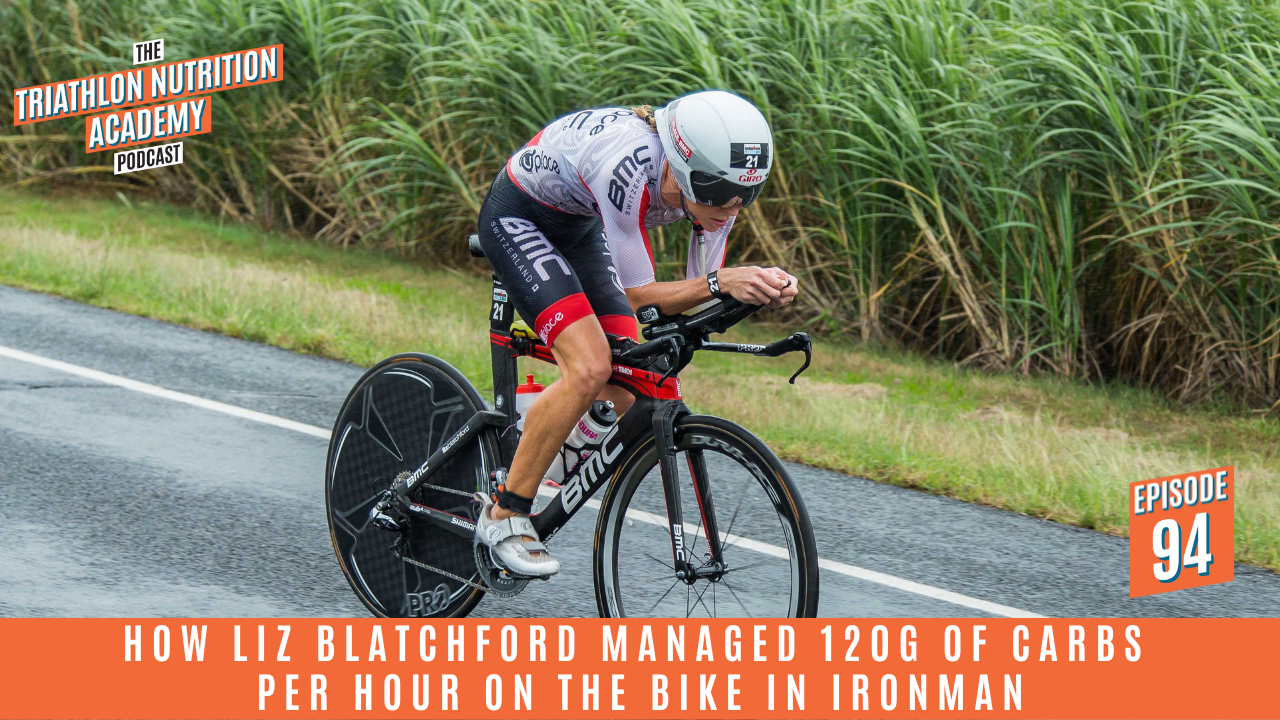
Liz Blatchford is one of the world's most successful triathletes of all time.
Blatchford’s 18 year racing career began in the ITU circuit in 2000 and transitioned to long course racing in 2012, winning her first Ironman at Cairns in 2013. Her career boasts victories in various 70.3 races, Ironman Cairns, and the Ironman World Championships in Kona. To top off an epic career, she was inducted into the Ironman Hall of Fame in 2022.
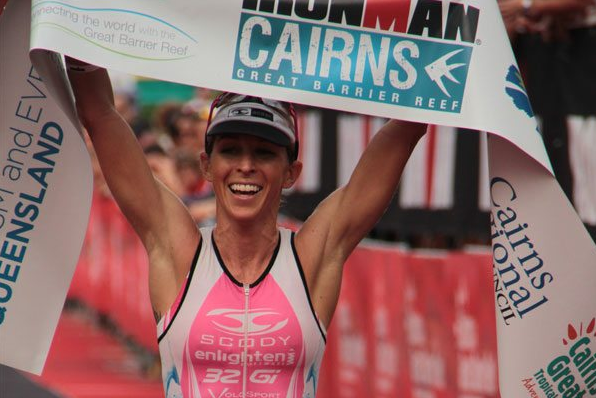
Blatchford attributes her success in triathlon to her nutrition, gut training, and trust in the professionals around her. Her approach challenges the current trend in triathlon of carbohydrate restriction and emphasises the importance of individualised training and nutrition strategies.
Blatchford recalls working with her sports dietitian, Greg Cox, to dial up her carbohydrate intake to 2 grams per kilogram of body weight per hour on the bike, a level that Taryn notes is considered "way up there" for most athletes. Blatchford says that she didn't r...
Blood Tests for Triathletes - What, When & How Often Should You Get Checked for Optimal Performance?
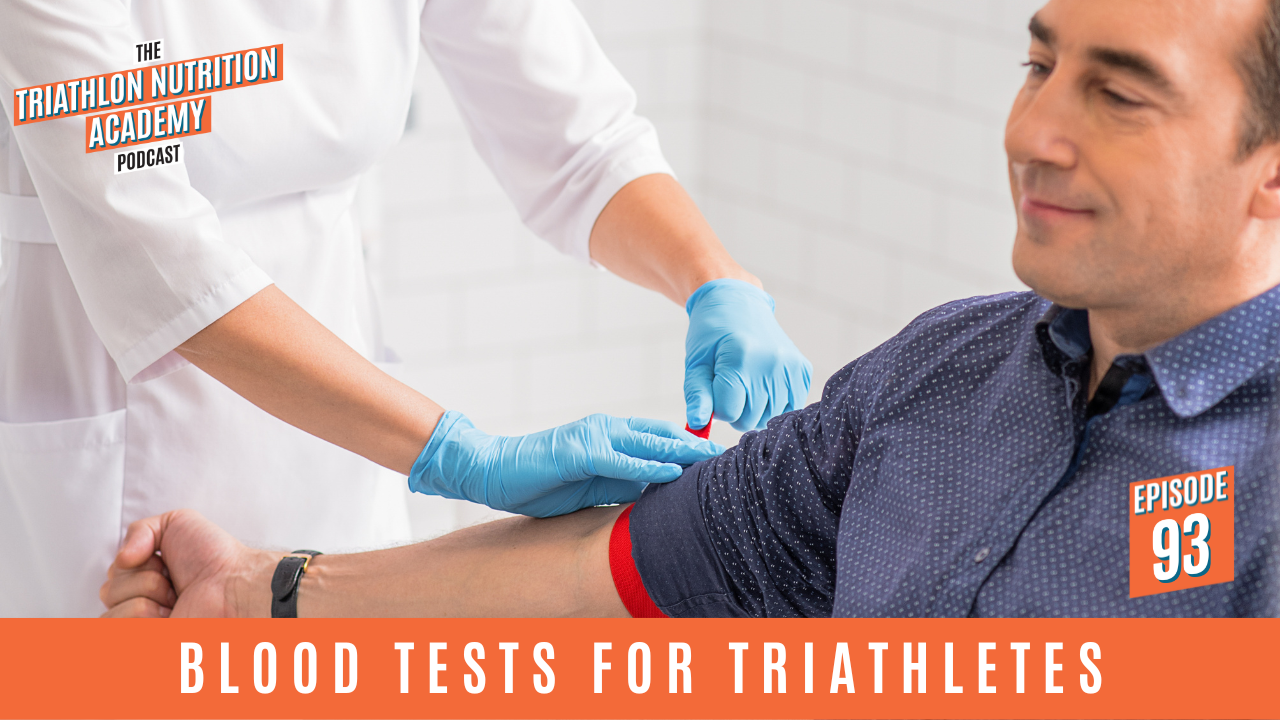
As an endurance athlete, it's important to maintain optimal health and performance levels. One way to check that you’re doing that is to get regular blood tests.
I was asked recently by one of the triathletes in our Dietitian Approved Crew Facebook group my thoughts on the value of blood tests, as there are a lot of companies spruiking these across many platforms at the moment. While we go into this in depth in the Triathlon Nutrition Academy, I thought it was important enough to share with everyone.
Blood tests can help detect any potential problems early on and allow you to make necessary changes to your diet and training regimen. However, it's important to know which blood tests are necessary and why and, equally as important, how to interpret the results.
First and foremost, the purpose of getting blood tests is prevention. By catching any potential health issues early on, you can avoid serious illnesses or injuries. Additionally, regular blood tests can help you achieve opt...
Lessons from Ultraman Australia with Denise Wilson
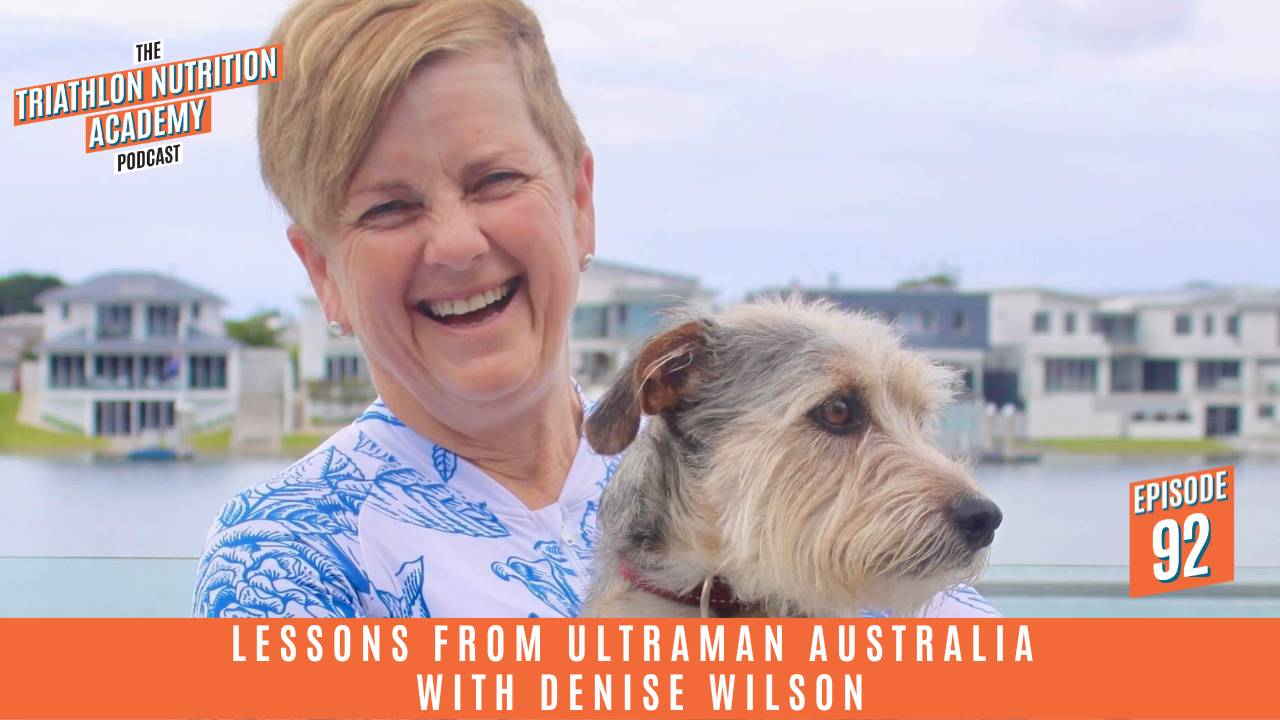
Are you wondering what kind of challenge or adventure can push your limits? Ultraman Australia is a triathlon in its longest form, that can take you on a crazy and intense adventure.
ULTRAMAN AUSTRALIA - Is a 3 day, 515km/ 320 miles, ultra-endurance event
- 10km swim (6.2 miles)
- 421.1km bike (261.4 miles)
- 84.3km run (52.4miles)
In a recent podcast, Taryn interviewed one of the Academy's athletes, Denise Wilson, who has taken up the challenge of Ultraman Australia, a triathlon that involves a 10km swim and a 140 km ride with 1500m of climbing on Day One. Day Two is a 283 km ride with similar climbing and Day Three tops it all off with a double marathon (with hills)!
Denise, who is 59 years old this year, ran her first marathon in 2007 and took up triathlon in 2012. In order to do Ultraman, you need to qualify and do an Ironman in a timeframe of 14 1/2 half hours. So Denise gave up all the running and learned to swim and ride to qualify for the Ultraman Australia event. She ...


